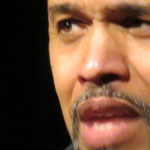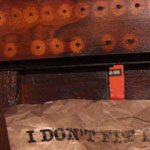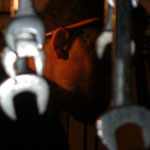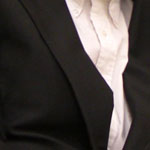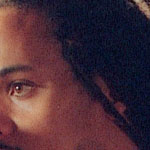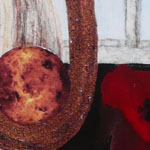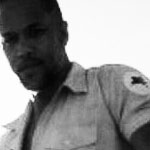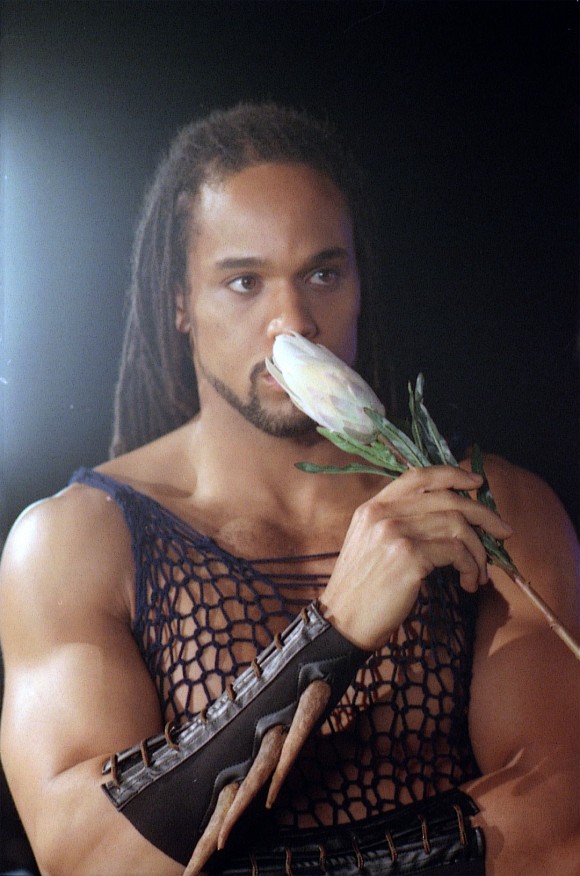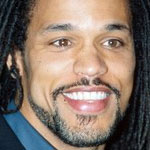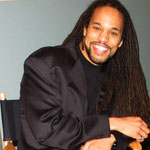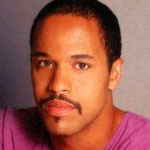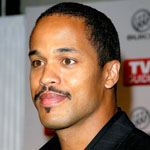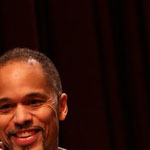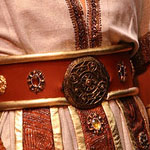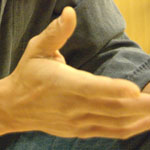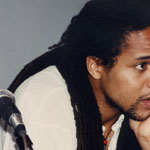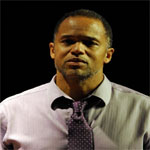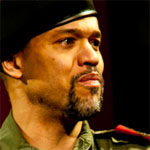(Because the Commonwealth is human-centric, and everything is measured in Earth years. Silly, yes?)
If now is a time that is forever “after this last” and “before that next thing,” then the now, or series of nows, that comprised the six months after I had, by what means I don’t really know, delivered myself from indenture to a ring of flash and weapons traders, and before anyone had ever offered me a fee to take a life, were peaceful. The verbal contract with the traders, a colorful but pernicious cast of characters who called themselves The Consortium, dictated that I remain in their employ for another full year. If I had not been bored, restless, at odds with their methods, undercompensated, and underappreciated …well…I am still. Suffice it, however, to say that if I had not been seventeen, which is to say had I been the mature and prophetic sage that I am today, I probably would have stayed. A funny thing, the propriety of thieves who will cite you your obligation to the letter of your contract with the gravest decorum while robbing everyone blind and fatting themselves on the fruits of your labor. Funny too are a young man’s impulses. Perhaps afraid that, once finding me gone, they would be even angrier with me to realize as well that I had run with some sizable portion of their contraband and thus be compelled to a more fervent pursuit, I instead took flight with nothing. I was to learn that, despite having left them with all that was “theirs” except for my humble self, my having broken my scoundrel’s oath and bolted at all gave them umbrage enough to pursue me to exhaustion, on sheer principle I suppose. It was a decision on my part that I can’t even label as juvenile, for it was one that no other Nietzschean male over the age of nine, to my knowledge, would ever have made.I surely should have filled my packs with all the tradable goods I could carry if I were to be hot-footing it around the sky for who knew how long with who knew how many of the syndicate’s badmen on my six. A large, maximum-yield firearm or two would have been a fairly smart bet as well in retrospect. But hindsight is flawless, and by seventeen I had begun, strugglingly, to come to terms with a much earlier realization, which was that I wasn’t any other Nietzschean male over the age of nine. All of my thinking upon my missing pride considered with the inexplicable nature of the very un-Nietzschean decision-making processes that I had involuntarily come somehow to employ brought me to this single unsavory, and yet perhaps ultimately liberating conclusion: The Kodiak had nurtured me in the cultural embrace of an unmistakably evolving ethos. It was more than that. It was, on some level, genetic. I’m sure of it now. Either way, however, I was, for better or worse, but usually to my extreme inconvenience, imbued with sensibilities that were in direct and perpetual conflict with some greater Nietzschean imperatives. And as if that were not issue enough, the ancestors had not then the common courtesy to remain present and account for them. There were no elders to whom I could turn for consult as moments of crisis arose. Nor, in repose, was there anyone left with whom I could leisurely discuss the pros and cons of having made choice “A” over choice “B”. One of my father’s many tenets to me was, “You are forever on your own.” How right he had been proven time and again, especially since he and all his tribe had left the visible plain, but there was precious little comfort that I could derive from his prescience now. I was a puzzle, I’m sure, to the sinister rabble with whom I’d been consorting, but no greater an enigma than I had become to myself. The reasoning that fueled my choices was most often untenable, sprung from overly fertile emotional soil seeded with exotic, un-native ethics culled from several years wandering among the non-Nietzschean, displaced from anywhere I might have ever called home, estranged from the native mind. Reflecting on this while space trotting unarmed and destitute, on the run from smart and livid gangsters, was a most inconvenient and roundabout way of learning lessons in Nietzschean pragmatism. While the coming decade of hand-to-mouth existence would hone many of my Nietzschean instincts to a sharper edge, such lessons would always be the most difficult for me to grasp, and I find that, even at my age, I might often be most beneficially served by the counsel of any normal, unremarkable Nietzschean nine-year-old, say of the Mandau or Volsung, who hasn’t the room in his pedigreed brain to entertain the capricious Chimeras that have seemed to forever prowl the cumulative Kodiak consciousness.
Ianthe was, and I imagine still is, a terra-formed planet bustling, in its terra-formed zones, with all manner of terra-formed life. This is to say that humans, being perhaps the most physically ill-equipped species to survive off their home world, have yet managed somehow to venture the furthest from it, endeavoring always and vastly to change not only the alien worlds they encounter to accommodate their needs, but the alien life forms as well. (Admittedly, Nietzscheans do this too, but there is no altruistic rationale, or speciesist veiling sophistry to accompany the behavior. Nietzscheans take things they want, plain and simple. And they keep them until they no longer need them, or until someone with the greater wherewithal arrives to take them back.) On Ianthe, the human manifest destiny was met with what I think they might have looked upon as a tolerable mix of success and failure. It is impossible to alter the physical appearance of a species as a whole without employing the extremes of genetic engineering, the results of which are even to this day highly unpredictable. (Consider the Nietzscheans.) The mind, however, the thinking, reasoning engine of nearly all higher life throughout the explored worlds, has always proven much more easily assailable. (Consider this Nietzschean!) So while non-human always looks like non-human wherever one goes, on terra-formed planets like Ianthe where humans have been long in residence, it is not uncommon, and in fact more common than not in the terra-formed zones for non-human to act most human indeed.
Iantheans are highly intelligent, gentle, unimposing bipeds with heads that seem a bit too small for their bodies and arms that seem a bit too long. They have no noses to speak of, or ears. Hearing, and smell to a lesser degree, is a process of their entire hairless bodies absorbing all environmental data through the skin. They hear everything acutely. To facilitate this physicality, they lived as nearly naked beings until the humans came along with two things that altered their entire way of life: clothing and noise. Terra-forming was minimal to make Ianthe habitable for the “Great Parent.”[i] The matter was simply an excess of carbon dioxide and a paucity of foliage to reduce it. It was an easy fix, and one that had much less of an impact on the Iantheans than did the human presence itself. They did not need the nitrogen and did not mind the trees. By and large, they kept to themselves, leaving the humans to their business of terra-forming large tracts of the small planet at will under huge, consumptive geodesic structures that swallowed the landscape. Not that they could have resisted the human progress if they’d tried. The Iantheans are by no means a warring breed. They’re techno-spiritualists if one must call them something – an odd racewide amalgam of science and religion. Still, it was not their peaceful nature that made them yield to the human will. It was the human decibel level that kept them away. The Ianthean hearing is so hyper-acute that you can scream at one and send him into a seizure, or even a coma if you scream long and loud enough. The pitch and resonance of the human voice, his music, his machinery alone or in any combination are all far more than the naked Ianthean’s central nervous system can withstand. Since asking a human not to be loud is like asking a percussion grenade to “explode quietly, please,” it was soon discovered that the only way to lessen the impact of cumulative human noise on Ianthean physiology was to cover their bodies in, first a skin tight stretch mesh fabric designed to decrees friction on the skin over which they began wearing altered, but still very human outer garments. This had the effect of making the Iantheans all look like similarly deformed humans with small heads, long arms, and pleasantly expressed, noseless faces, the only part of their anatomy to remain visible, that and their fragile, hyperdexterous, multi-digit hands. And this is how they would appear when among humans in the terra-formed zones once a steady commerce between the races had been firmly established. The Iantheans designed, manufactured and supplied superior nano-technologies to an insatiable universal market. First among their consumers were the humans, which in large part explained the bourgeoning human presence on Ianthe itself. It was a cultural vocation. They all did it, and in a million years no portion of the population could have successfully crossed over into the field of clothing design and production. It was not of their species. It was as foreign to the socio/spiritual bent of their entire people as honest gamesmanship is to the Nietzschean. In order then to maintain productive and efficient contact between worlds, the human manufacture and sale of protective garments to fit Iantheans became a necessary and rather lucrative industry. Among the Ianthean minority who trafficked in the terra-formed zones, the novelty of ornamental aesthetics grew in proportion to the human ability to serve up fashions just as quickly as an Ianthean could convince himself that he ought to have a bright green jumpsuit with yellow stripes as well as a blue one and shoes to match. In the terra-formed zones, these wildly intellectual and spiritual creatures gave over to a newly born sense of vanity and even competition with no regard for taste. They had none. Outside the zones, Iantheans in all their nakedness went on about their affairs in the whispering stillness of their living and working places. However, even there, it was not uncommon to see a native whom dressing had made either modest or proud who now preferred a gaudy suit of clothes and a permanent reduction in sensory perception to the natural state wherein they had lived – “before the humans got here.”
Reynald was a diminutive man with a huge spirit. He was a human, but as a devotee and master of several martial disciplines, he had trained his cardiovascular system to metabolize the nitrogen-heavy air enabling him to live freely outside of the terra-formed zones. In this regard, he had become like a Nietzschean, whose lungs will extract the scant requisite minimum of oxygen needed to sustain our durable physiology from any combination of latent gases, provided it’s present among them. It was quite literally into Reynald’s hands that I fell the evening I came to town, staggering delirious through the door of a local Ianthean café, my last stop and hope in my flight from the hired guns of The Consortium. I imagine my logic at the time, if it were such, was that the mostly human manhunters would spend little time searching for me where the air was unbreathable except with the help of costly apparatus. I must confess it was hardly a conscious, much less rational, choice on my part, leastwise one that I only vaguely remember making. By that point, a swift breeze could have swept my legs from beneath me. An honest analysis would argue that nothing more than a simple trick of fate left me unconscious in the arms of a teacher and a friend. I was seventeen, alone, and unclear. And I was in desperate need of both.
I lived with Reynald for six months, studying knife fighting, and availing myself of his extensive library; data mostly on applied religion and pre-Commonwealth philosophy of many strains. I was an abominable student, “lacking discipline and stillness” I was told, as if it were news. The knives he gave me I carry still, but have never yet learned to use with any degree of skill that might suggest my ever having been tutored by a master. Reynald never seemed to mind my truant nature. I think that as he had come to know me he must have realized that there was little chance of my achieving a greater stillness, not then. I was too wild, too wanting, my heart and head constantly attending to the task of attempting to sort out the questions of why I was who I was and what was to be done about it. The voices that spoke to me; the admonitions and exclamations; the desperate whispers in the void never fell silent. And so, in such a state, it was Reynald’s kind, unthreatening stillness; his inner peace that fed me. He had sought out the Iantheans because they were like him. They vocalized in sounds barely audible to the unaccustomed ear. I could hear them, but only because I was Nietzschean. Reynald heard them because his placid disposition was free to be receptive to the slightest vibration. Between them, I might have found much worse a place to hide until such time as The Consortium forgot my name.
If there had been anything on Ianthe that anyone would want, the Nietzscheans might have run the place down ages ago. It seemed such an easy mark. Of course, that would have had to have been before the Commonwealth lent them its protection and became the chief consumer of their only cash crop of infinitesimally small machinery. (Actually, now that I think about it, it would also be owing to the all hallowed wisdom and benevolence of the Commonwealth and its smiling human face that the only non-Iantheans ever allowed to colonize here were human. But that will be an endless howling digression if I am let, so let me not.) It was never clear to me how these, to all appearances, still somewhat primitive people had evolved into the preeminent engineers of nano-tech. Who did they sell it to before there was a Commonwealth? Did they invent it? If not, what then occupied their time before someone else did? And how, above all, did the technological acumen that seems to be written into the genetic code of this species become one with Ianthean mysticism to create this race of engineer ascetics? I have here before written that the Iantheans are techno-spiritualists. I have only just coined the term, but in truth, I would be hard-pressed to describe them any other way. All that they appear to live for, those that have not been co-opted and corrupted by the humans in the terra-formed zones, is to commune on some Zen-like level with the various processes of creating nano-components. I had always imagined that was why Reynald had gravitated to their environs. Like any other fine craftsmen or artists, it was never simply the skill that gave them preeminence, but the monk-like, all consuming focus, to the exclusion of every peripheral irrelevancy, that dominated their working hours, and ethics. Reynald wasn’t sure how to answer my questions concerning the Iantheans. Perhaps it was really that he wasn’t sure how to answer me. I hung on his every word because of the way in which he spoke them; softly and measured, with the thoughtful economy of breath that comes of knowing. My mother had done the same. But largely, his explanations seemed to me as puzzling as my questions; esoteric, and not for my understanding. I was often distressed by my inability to comprehend his teachings, despite my desire. Noting my frustration on many occasions, he would prophesy that the way of the peaceful warrior was not my path. That truth, he said, was unalterable, and that I needn’t worry, but that my spirit would tune to those aspects of his teaching that would be of use on my particular journey. I took great comfort in that. I had known no “good” men in my life thus far. I needed to believe that his presence had purpose. As for the Iantheans, I needed to believe that my presence among them had purpose as well. Between Reynald and the natives I remained, over my six-month stay, both wildly fascinated, attentive, and inexplicably calmed. Perhaps that was purpose enough.
To the average outsider, particularly a human one, the Iantheans appear standoffish and aloof. They are not really. They can communicate clearly in Common and even in English if they must, however they are naturally apprehensive about being in close proximity to anyone or anything that is not vigilant of, and in fact, responsible for the hypersensitivity of their nervous systems. It takes a while for an Ianthean to begin to trust that a human will not suddenly give over to some loud outburst, as they are prone to do, either in anger, or surprise, or even a noisy fit of laughter that will send their physiology into shock. Likewise, they are very hesitant to touch. The very act of a handshake becomes an ordeal when an Ianthean, for diplomacy’s sake, ventures the surrender of the delicate structure of his hand unto the cumbrous and forceful grasp of a man. While they have a spoken language, they often communicate with one another employing a wide range of facial movements and expressions to take the place of the spoken word. These expressions Reynald had mastered as well as anyone could who didn’t have an Ianthean face. I too rose to the discipline of “speaking” in this way to the extent that it was possible in the short time that I had there. My initiation into this aspect of their culture had resulted from my reactions, one day, to the looks of great discomfort on the face of the Ianthean with whom I was engaged in casual conversation. He contorted his face as though I were methodically breaking his fingers as I spoke. Reynald had come to his rescue, explaining to me that while I was attempting great awareness of the decibel level, being unaccustomed to speaking in this way, I was often, even at a whisper, assaulting his “ears”. When it was further explained to me that the only reason the Ianthean had not simply broken off the conversation and walked away was his reluctance to offend me, I thought it somehow only proper that I make best efforts thenceforth to live, as Reynald did, as Ianthean as I could. At least for a while. For the effort, I was embraced, and, as I said at the beginning, for that particular now there was peace.
Reynald cautioned against venturing into the terra-formed zones. Firstly, he opined, it was imprudent for a wanted man to tarry about in major areas of commerce, being as I wasn’t particularly difficult to spot. Beyond this, he would regularly note, young Nietzschean men have a way of stirring up trouble simply by virtue of being young Nietzschean men. I knew this to be true as well. I also knew that it was a disrespect to the Iantheans for me to risk drawing unrefined humans back into their communities on my heels. I resolved never to let this happen, but I had to go. Reynald had told me of an opera house. The humans had built themselves a magnificent one where all the bombastic arrogance, fury, and emotional incongruity of their people were intricately woven into a single sublime and transcendent art form, perhaps their only indelible contribution to civilization. I loved the opera with a passion unfamiliar to any other aspect of my life, and once having been made aware of it, I could not stay away. Serving only to further my infatuation, on my first incursion into the zones to attend the premiere of a new work, I fell lust-struck with the beauty of a woman who managed the restaurant adjacent to the theatre. I needn’t paint her in detail. She was a tall, strong specimen of womanhood, with big dark eyes and a great shock of brilliant red hair that fell uncombed and wild about her shoulders and down her back. She never knew my name, nor I hers, but in frequenting the opera I would, with newly invented airs of Nietzschean gentility, take a corner table in the restaurant, order dinner, and eat nothing, expending the hour rather in staring at her as she went about her evening’s business. Her being, like the music, was art, and thus beyond my or anyone’s simple powers of description. To this day I remain ravenous for them both. And how very un-Nietzschean is that? How my old dragonian ancestor Temujin would have scoffed to hear me say such a thing. How I blame him. How I blame them all for dying before they could see anything through my eyes.
By the fifth month of my stay, Reynald had given up teaching me knife fighting. That’s not quite true. He would have continued forever with a monk’s patience, but I had given up learning. A Nietzschean would much sooner poison a fellow’s tea, than he would ever go hand-to-hand in a test of martial skills. As far as such skills are concerned, while having finely honed ones are an advantage, even an untrained Nietzschean fights with all the amplified, focused insanity of a cornered animal, and an opponent’s martial savvy doesn’t guarantee a victory. Reynald was quite aware of all of this. He wasn’t worried, I don’t believe, about my survival per se. But rather he had imposed this discipline for the purpose only of stilling my mind; to collect the focus scattered about a mental landscape of irrational concerns, and rest it firmly on the solid ground of self-awareness. The last month we spent engaged in dialogues comparing what he knew of human evolution to what I knew of Nietzschean. We spoke also at great length of the idea of the individual in space and time, and the personal evolution that he effects, irrespective of the group from which he springs; effects and may, to some extent control, depending upon his ability to gather and use the tools of self-actualization that keep him conversant with the universal law. Nietzscheans are taught to regard the Universe as an adversary to be forever overcome. By extension, everything existing in that same Universe is an adversary until proven otherwise. What Reynald propounded was that the Universe, at most, is unconcerned, and that one’s adversary is always one’s self in his inability to still the internal confusion and envision himself as always perfectly placed in the cosmic scheme. I recognized this thought as not being at all far removed from its Nietzschean cousin, “You are the center of the wheel…”[ii], the difference being only, perhaps, that the Nietzschean is perpetually battling for the placement that he has never learned to trust he has always had. In our solitudes, frames of mind often become our only friends. This one has never been easily put down.
Six months in total I stayed with Reynald and the Iantheans. Six months was not long enough to quell my restive disposition. Did pride-bound seventeen-year-old Nietzscheans behave differently, I wondered? I was sure they must, or I would have certainly run into a few more, at least, bouncing entropically around the planets and drifts. Reynald assured me that despite my longing, conflict, and unanswered questions, mine was the greater blessing. I, at least, was not tethered to old dogma attempting to go un-refuted where it no longer can assert the right. Such, it seems, are the present day Prides, often almost laughable, standing upon nothing more substantial than big muscled legs, waving even bigger guns. I, instead, was free to create the Nietzschean presence that I alone was responsible for, unrestricted by outdated schools and patterns of thought. If I felt the truth of this when I left, I felt it not as a blessing at all. And I desperately wished myself back on Ianthe while fighting a month or so later in a mercenary army for control of some worthless rock a few thousand light years away. But it would not be. I would not sit for the opera again, nor entertain fantasies of kissing the red-haired woman, nor listen to Reynald softly articulate to me hints of who I was. It was not to be that easy, and I have always preferred easy. Lazy is this irascible, cogitating Nietzschean along with whatever else, which might explain why I am still, at this late date, attempting to find the sense.
Here on The Andromeda, and in the space that she ferries me about to explore, the novelty grows old. Here and now, the old Nietzschean archetypes, the common observer’s perspective, and the sorry half-assed hordes of mediocre bandits standing in for a once majestic race have me bored, ill, and impatient by turns.
And I admonish you, Oh Universe! A Nietzschean does not wait well. What now? And where, I demand, was the wisdom in extinguishing the last of the race that might have brought a new voice to the growing, ignorance-expressing communal babble? I am nauseated with the incessant jibber and scratch of the well-meaning simpleton, and the directionless do-gooder. Send me a Dragan scholar, if there be such a one; an intellectual, and let us reason. Send us a Jaguar whose father spoke not only of strength and dominance, but also oddly of hope. Find us a Sabra alpha that took a Mandau wife, and send us their dragonian yet effeminate second son. Send us a slaver’s son who dreams of poems and paintings. Send them. Give us a room and bolt the door. We will talk. I shall tell them of the opera, and of a red-haired human woman worthy of any Nietzschean sire. They will tell me their separate truths and I will listen without prejudice. We will laugh. We will articulate. We will fight and vent our Nietzschean hubris on one another’s face, letting blood and destroying the furniture. And perhaps we five will discover, at last, the heart of a dormant race and shock it into beating once again. Pity me in nothing but this, but this I implore you do at once. For I am, in the end, a Nietzschean. And in my solitude I fear sometimes that of which I am capable.


